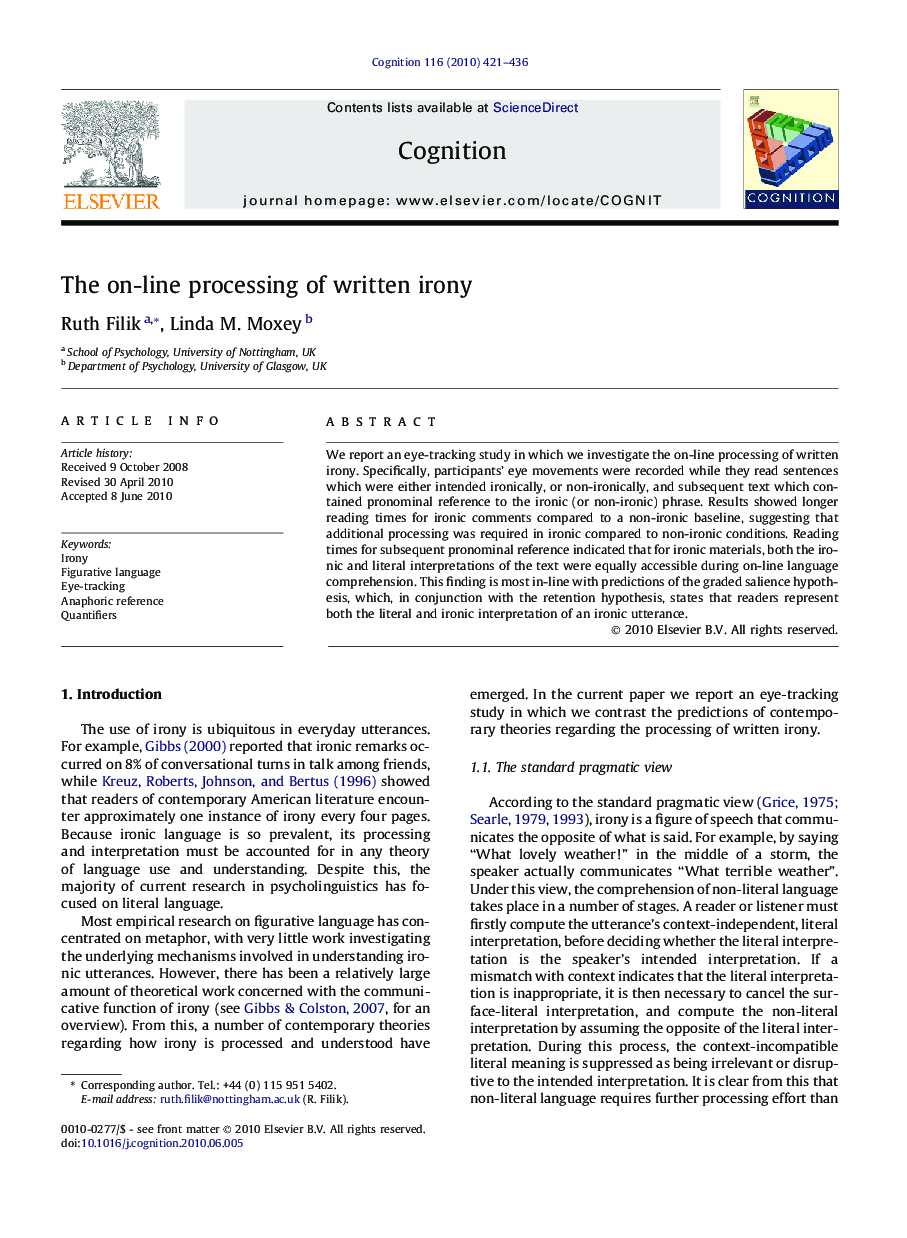| Article ID | Journal | Published Year | Pages | File Type |
|---|---|---|---|---|
| 926743 | Cognition | 2010 | 16 Pages |
We report an eye-tracking study in which we investigate the on-line processing of written irony. Specifically, participants’ eye movements were recorded while they read sentences which were either intended ironically, or non-ironically, and subsequent text which contained pronominal reference to the ironic (or non-ironic) phrase. Results showed longer reading times for ironic comments compared to a non-ironic baseline, suggesting that additional processing was required in ironic compared to non-ironic conditions. Reading times for subsequent pronominal reference indicated that for ironic materials, both the ironic and literal interpretations of the text were equally accessible during on-line language comprehension. This finding is most in-line with predictions of the graded salience hypothesis, which, in conjunction with the retention hypothesis, states that readers represent both the literal and ironic interpretation of an ironic utterance.
